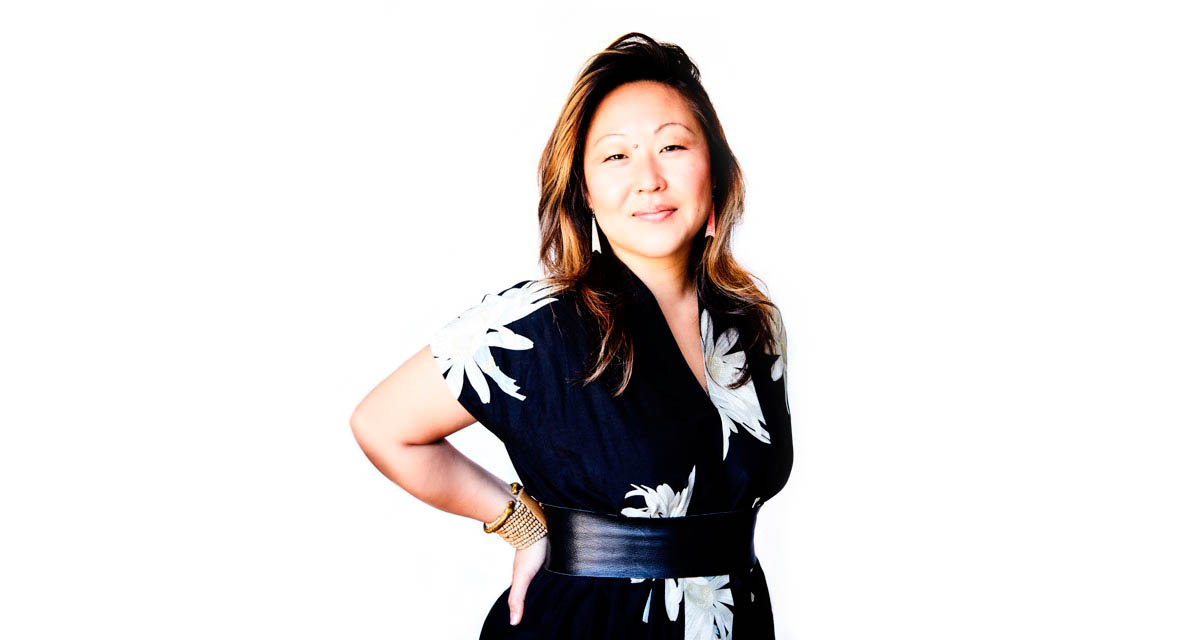8 Questions with Su-Jung Lee
Su-Jung Lee is a Vedic Meditation teacher and acupuncturist based in NYC. Read on for her unique perspective on acupuncture and its universal benefits.
What’s your favorite food? Pasta and dumplings of all varieties.
Why did you become a Vedic Meditation teacher? Vedic Meditation helped me answer so many of my big life questions and gave me the perspective to effortlessly be the kind of person I wanted to be, the best version of myself. It was so simple and hands down the best investment I’ve ever made in myself. Once you know how simple things can be, it becomes a responsibility, as well as a pure joy, to share and teach the knowledge with people who are searching.
You’re also an acupuncturist and herbalist. What’s a profound transformation you’ve seen in a client? A young woman came to me once; she had stopped menstruating as a result of profound stress and was hoping to become pregnant. She had a history of amenorrhea, also from another stressful event, therefore a tendency. Her doctors could give her medicine to start her flow, but sustaining a regular flow would be another issue. Because she did not want to take herbs, we just addressed it with acupuncture. First we helped her to regulate her flow, then helped optimize changes for getting pregnant. We worked together regularly for about a year; then I left for India. I heard from her about year later and she had delivered a healthy baby girl. Chinese medicine is great with women’s health in general. We have many strategies to address amenorrhea or dysmenorrhea, meaning painful periods. Most women think it’s “normal” to live with PMS and menstrual cramps. It is commonly accepted, but not at all normal or optimal. With herbal therapy and/or regular acupuncture, these things are fairly easy to address.
What’s the NADA protocol? Why have you chosen to offer it at The Spring? NADA stands for National Acupuncture Detoxification Association. The NADA protocol was originally created to support people dealing with opiate withdrawal. It became known as a detox protocol because it was found to help people with general addiction and trauma. NADA is done in a group setting because there is also a synergistic effect when experienced in a group. It’s similar to how people sometimes report having deeper meditations in a group. Whether or not you struggle with addictive tendencies or a particular trauma, the average person has their nervous system on overdrive. Labels aren’t so important; NADA is essentially a great way to experience some stress relief and have a shared experience. It’s a great introduction to acupuncture if you’re new to it, or an easy way to get an affordable treatment.
Tell us about the points used in the NADA (Detox Acupuncture) protocol. NADA is a 5 point auricular (ear) protocol: Shen Men, Sympathetic Nervous System, Kidney, Liver, and Lung points. They help promote a sense of well-being, help manage withdrawl symptoms, and help with PTSD. The ear is a micro-system for the body and can be used to calm the nervous system.
Why do some acupuncture points feel intense, while others are virtually sensation-less? The needles are just conductors, or tools. There are many variables that contribute to the sensations we feel, but there is some level of predictability based on certain conditions: the energetic exchange between patient & practitioner, the general health of the patient, individual sensitivity levels, and the amount of Qi they have to work with. Qi is the life force that runs through our channels. In Chinese Medicine, pain is seen as lack of flow or stagnation/stasis. Some points tend to elicit stronger sensations because there is more Qi in that particular area at any given time. Needled technique is also one way to increase or diminish sensitivity, depending on what the desired effect is with that particular patient.
Is it possible to have a “bad” reaction to acupuncture? Acupuncture is much safer than commonly prescribed pharmaceutical medicine, such as anti-depressants (ie.SSRIs) and opiate pain medication. That said, the worst case scenario would be pneumothorax, puncturing the lung, but that is extremely rare. More commonly, one might experience some bleeding or bruising and that would be considered to be diagnostic. There are no major implications of danger with acupuncture, especially when receiving it from a well-trained Practitioner. That means someone who has a Masters Degree with over 3000 hours with an accredited institution. You want to make sure your practitioner is state licensed and ideally Nationally Board certified too. I am both for Acupuncture and Herbal Medicine.
How long after a treatment do the effects last? Acupuncture, like meditation, has cumulative effects. It is capable of having some instant effects, but for true health, it’s an overall balance we want to sustain. I am a firm believer in holistic health, which means I do not offer quick fixes alone.
Thanks for hanging with us, Su!
You can find Su-Jung at Juniper for acupuncture treatment, on Instagram @truing_sj, and at vedicwithsu.info.

